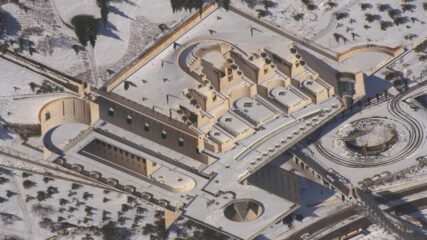June 14, 2009
Prime Minister Benjamin Netanyahu delivers a 30-minute foreign policy speech at Bar-Ilan University, Israel’s second-largest university. The speech briefly touches on the looming Iranian threat and the global economic crisis. Its main focus, however, is on the prime minister’s vision for resolving the Palestinian-Israeli conflict. Netanyahu’s speech breaks from earlier notions of a two-state solution put forth by two of his predecessors, Ariel Sharon and Ehud Olmert. Netanyahu offers details for a Palestinian state and assures that such a state would be completely demilitarized.
Broadcast on national television, the speech is timed to coincide with the evening news. It comes 10 days after American President Barack Obama gave a major address in Cairo but is not a response to Obama’s outreach to the Muslim world. Netanyahu personally urges Obama to watch his address.
The speech makes Netanyahu Israel’s first prime minister to frame the architecture for a two-state solution with significant detail but without speaking specifically about borders or Jerusalem. The five points outlined in the speech are: 1. Palestinian recognition of Israel as the Jewish state; 2. the creation of a demilitarized Palestinian state; 3. a resolution of the Palestinian refugee issue that does not include a return of refugees to Israel’s pre-1967 borders; 4. the need for Palestinian economic development; and 5. an end of building new Israeli settlements while allowing “natural settlement growth to continue.”
Netanyahu says: “In my vision of peace, in this small land of ours, two peoples live freely, side by side, in amity and mutual respect. Each will have its own flag, its own national anthem, its own government. Neither will threaten the security or survival of the other. These two realities — our connection to the land of Israel, and the Palestinian population living within it — have created deep divisions in Israeli society. But the truth is that we have much more that unites us than divides us.”









